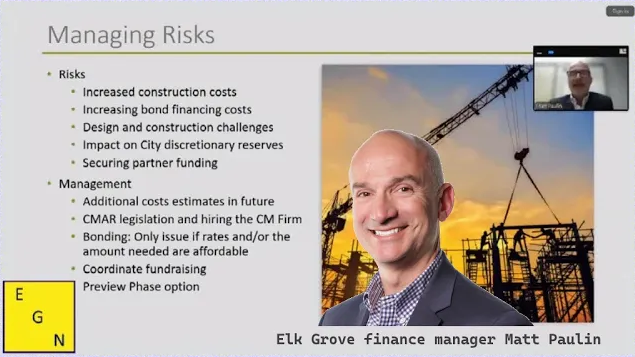Elk Grove City Council members to be affected by new law, limits on political contributions
New law seeks to limit overt political influence
A bill signed in September by Gov. Gavin Newsom that became effective January 1 will influence how local officials throughout California finance their campaigns. That legislation, Senate Bill 1439, amends the 1982 so-called Levine Act.
The legislation will close loopholes that allowed local elected officials, like the Elk Grove City Council embers, from taking campaign contributions from entities with business before the city.
Known as the “pay to play” bill, the Levine Act prohibited government officials from soliciting or accepting campaign contributions of more than $250 from persons with proceedings for a “license, permit, or other entitlement for use” before the government agency. However, local elected officials were exempt.
The bipartisan legislation was sponsored by Common Cause California and authored by Sen. Steve Glazer (D – Orinda), and Sen. Scott Wilk (R – Santa Clarita) closes the loophole and now includes local elected officials like school board members, special district representatives, city council members, and county supervisors.
“Transparent government is good government, which is why I am proud to co-author this measure,” Wilk said as the legislation was introduced. “It will ensure decisions by local officials regarding approval of licenses, contracts, or permits are for the public’s benefit and not for their own personal gain.”
With the expansion of the law, if an elected official receives contributions greater than $250 from a person or entity whose business comes before the agency within 12 months, the official must disclose it publicly during the proceeding on the donor’s business, recuse themselves from the proceeding or return the money within a specified time period. The bill also expanded the waiting period from three months.
This bill will affect future campaign contributions for Elk Grove City Council members who have relied heavily on large cash contributions from real estate developers. Conversely, the limits could prompt real estate interests and other businesses wanting to influence city council members to establish independent expenditure committees, which are not covered under the new rules.
Additionally, it has been suggested the law could exasperate California’s housing shortage by tying real estate developers’ hands. An opinion piece by Steven Churchwell of the Buchalter law firm suggested the law would be challenged.
Churchwell wrote, “The combination of a $250 contribution limit that is ridiculously low, combined with the adverse impact on the First Amendment rights of elected officials and their contributors, almost guarantees that a court challenge seeking to invalidate SB 1439 will be filed” and “SB 1439 is yet another gut-punch to any developer who tries to build housing in California. NIMBYs and unions who try to stop or slow down such developments are not restricted by the law since they are not parties, and they only meet the first part of the participant test (lobbying), but not the second part (financial interest).”
Nonetheless, the bill passed through the Assembly and Senate last year with bipartisan support. Common Cause California hailed the new law as pro-democracy that will increase government transparency.
“Our democracy belongs to the people, not the highest bidder,” Jonathan Mehta Stein, Executive Director of California Common Cause, said. “This legislation gives power back to Californians by holding our local leaders accountable to the people they serve.”



